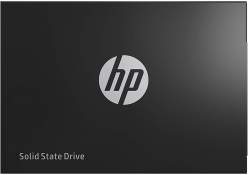What is an SSD?
Solid State Drive (SSD) is a data storage device, which uses integrated circuits to store data. Data is transferred with the help of electrons, hence the speed of data access/transfer is very fast compared to traditional Hard Disk Drives (HDD).
Advantages
- Faster Access to data
- Faster transfer of data
- Small in size and light in weight. Therefore, a good fit for laptops.
- Consume less power . Therefore laptops with SSD have vastly improved battery timings compared to laptops using HDD
- Dissipate less heat
- Quiet operation since SSDs do not use a cooling fan
- Resistant to mechanical shocks
Disadvantages
- Costly
- Have shorter lifespans, typically 5 to 10 years compared to HDD. Therefore SSDs are not popular for use in Server Computers.
SSD Storage Capacities
- 120GB to 100 TB
SSD Data Transfer Rate
- 200MB/s to 600MB/s in SSDs typically used in laptops
- Several GB/s. SSD with PCIe 3.0 can support up to 32 GB/s
SSD Interfaces
- SATA
- NVMe
- PCIe
SSD Manufacturing Technologies
- EEPROM Technology based on NOR chips.
- These SSDs are faster and more expensive, and not used in laptops because of cost implications.
- Flash based on NAND Chips
- These SSDs are relatively cheaper and widely used in laptops
SSD manufacturers
Related Articles
For laptops with SSDs you can check the following articles


One thought on “What is an SSD?”
Comments are closed.